How to Start Hiking: 15 Beginner Hiking Tips
This article may contain affiliate links, meaning I may earn a small commission if you purchase through these links at no extra cost to you. Please refer to my Disclosure Policy for more information.
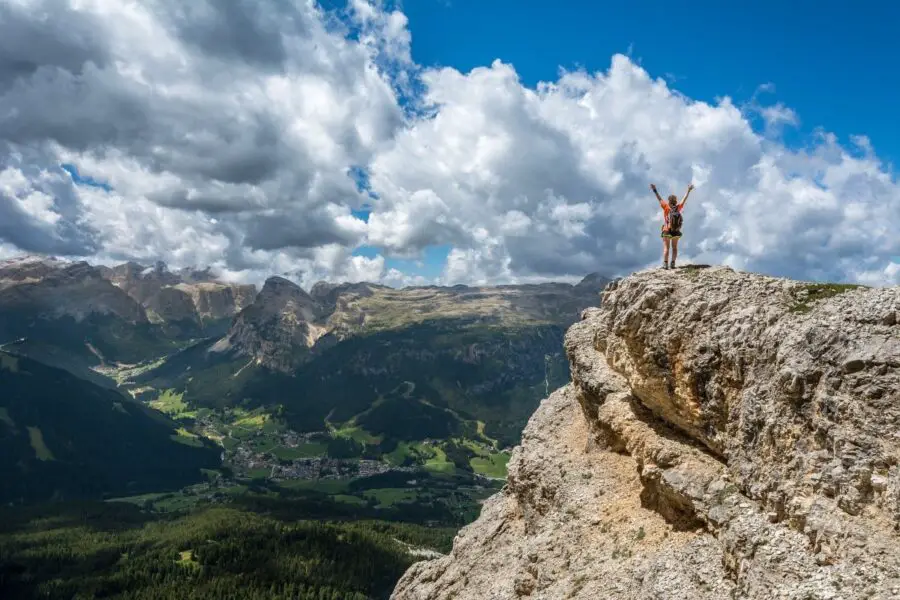
Want to start hiking? Well, let me be the first to offer my congratulations! Hiking offers a plethora of health benefits, including improved bone density, a reduced risk for heart disease, and an overall reduction in stress levels. And who can forget the great advantage of admiring some stunning scenery?
While embarking on your first big hike may feel intimidating, it doesn’t have to be; you don’t need any special skills to hike. However, there are risks to hiking. Consequently, if you want to start hiking safely, there are many beginner hiking tips you should know. Want to find out what they are? Continue reading, for the 15 best hiking tips for beginners!
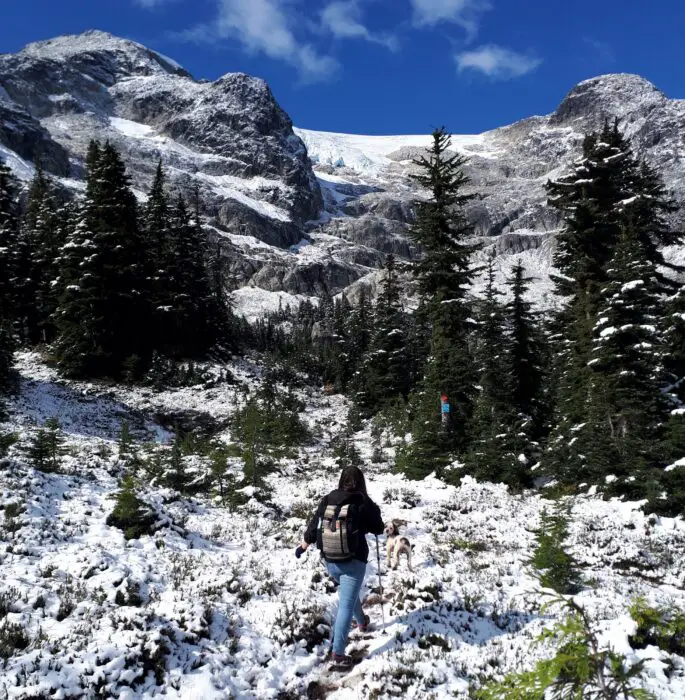
15 Essential Beginner Hiking Tips
Start Small
First, one of the best beginner hiking tips to remember is to start small. A common mistake beginner hikers make (and this included me) is to overdo it right away, which typically results in an utterly miserable experience.
So, you want your first few hikes to be easy, on a well-maintained and clearly-marked trail, perfect for your current fitness level. I recommend checking out the trails at your local parks.
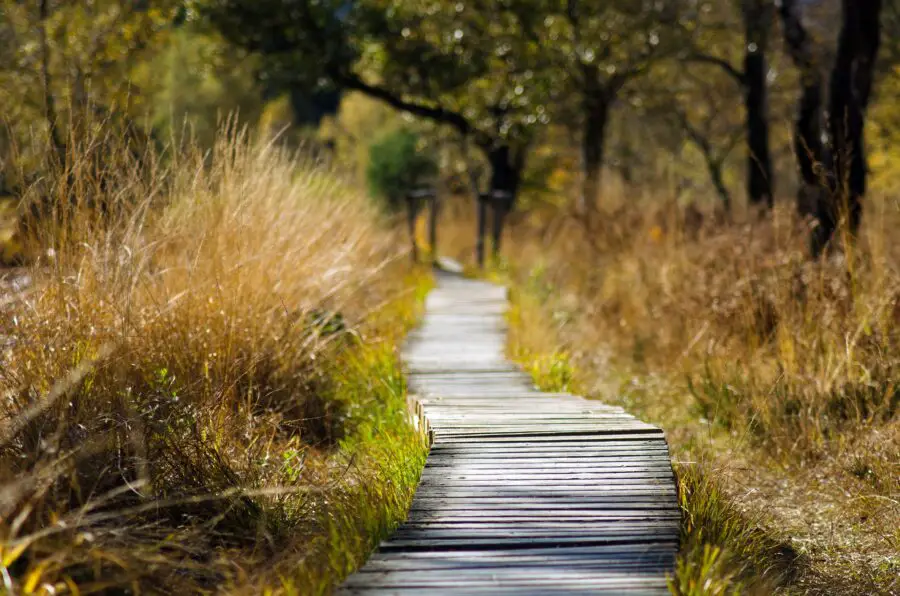
Additionally, you’ll want to review how long the hike is, the distance you’ll cover, and most importantly, the elevation change. These three variables will have the most impact on how difficult the hike is; I recommend using AllTrails.com.
Over time, after you’ve gone on a few hikes, you’ll be able to gauge your own hiking abilities better. With this knowledge, you can slowly build it up so you can embark on some epic day- or multi-day hikes!
Review the Trail
Along with choosing an easy hike, it’s best to review the hiking trail beforehand, so your hike can go as smoothly as possible. Look at the parking situation, areas where you may get lost, good lunch spots, whether pets are allowed, and most importantly, any recent updates on the trail conditions.
Once again, AllTrails.com is your best friend (especially the reviews!).
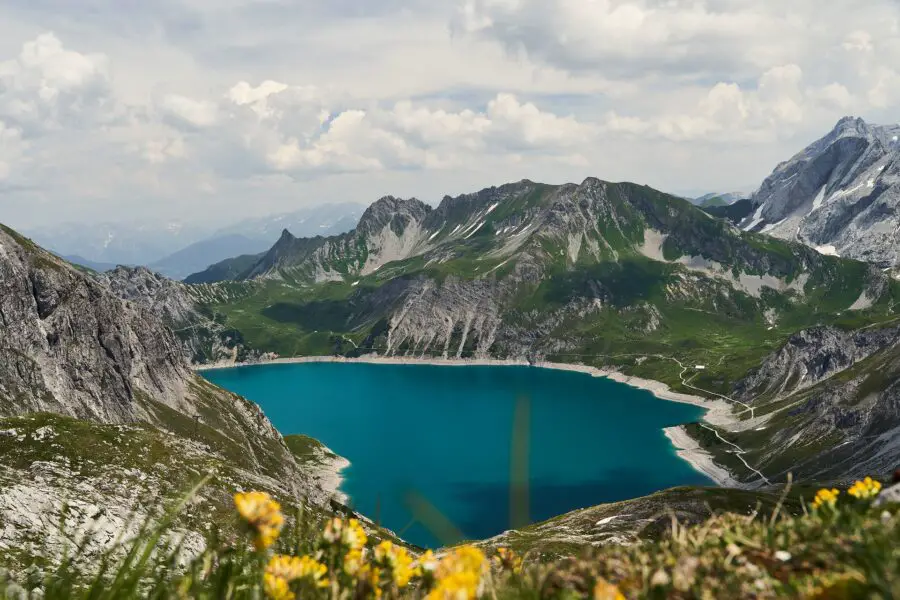
Check the Weather
Another element that can really make or break your hike is the weather; hiking in terrible weather can be outright dangerous. I recommend checking the weather forecast the day before you embark on your hike, and the morning of (since the weather can change unexpectedly!).
While you can still hike in bad weather, you will have to dress and pack accordingly.
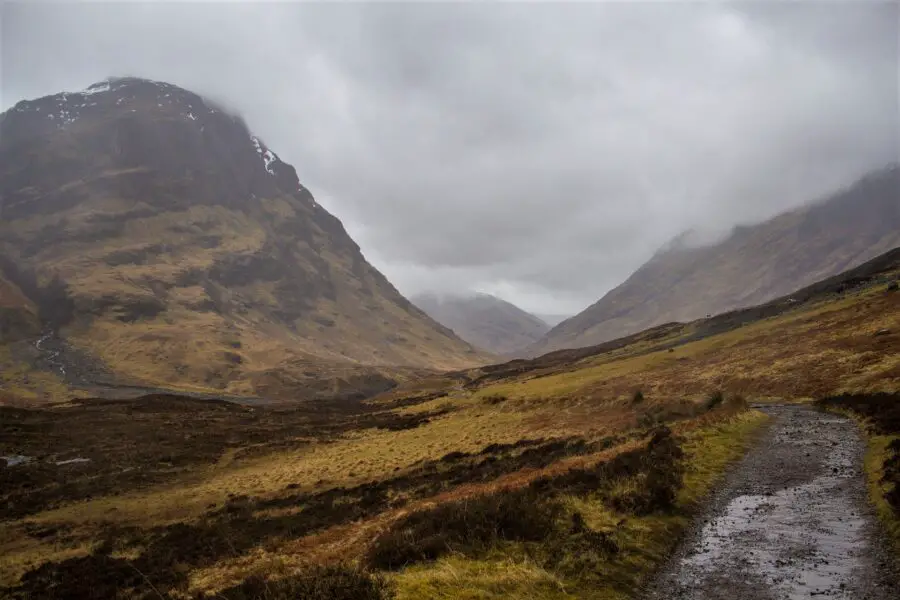
Hike at the Right Time
Similar to checking the weather, you should also make sure you’re hiking at the right time. Check the daylight hours before embarking on your hike, and make sure you can finish your hike well within the daytime. As a beginner hiker, you definitely do not want to hike in the dark!
Others factors to consider are the times that the weather is optimal and the hiking trail is most popular (for instance, if the hiking trail gets super crowded at around noon, you may want to avoid hiking at that time).
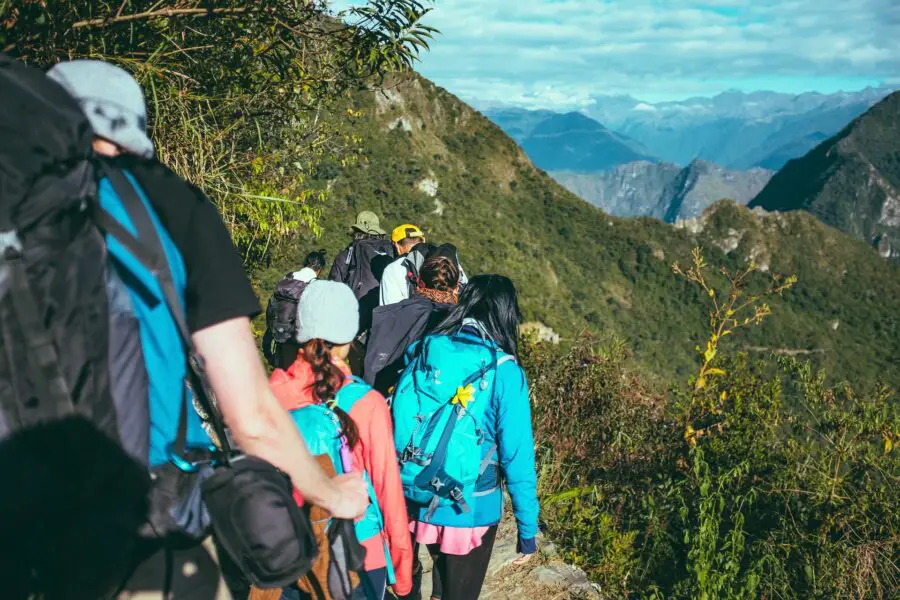
Let Someone Know Where You’ll Be
This is the number one lesson I learned from Aron Ralston in 127 hours: let others know where you’ll be. If someone knows where you’re going hiking (specifically, what trail you’re embarking on), and what time you’ll be back, they’ll be able to send help if anything goes awry.
And remember to do this whether you’re hiking alone or with others!
Hike with Others
To segue into the next beginner hiking tip, it’s best to hike with others. While this isn’t essential (I personally love hiking alone), hiking with someone else is safer, as you’ll be able to get more immediate help if something goes wrong.
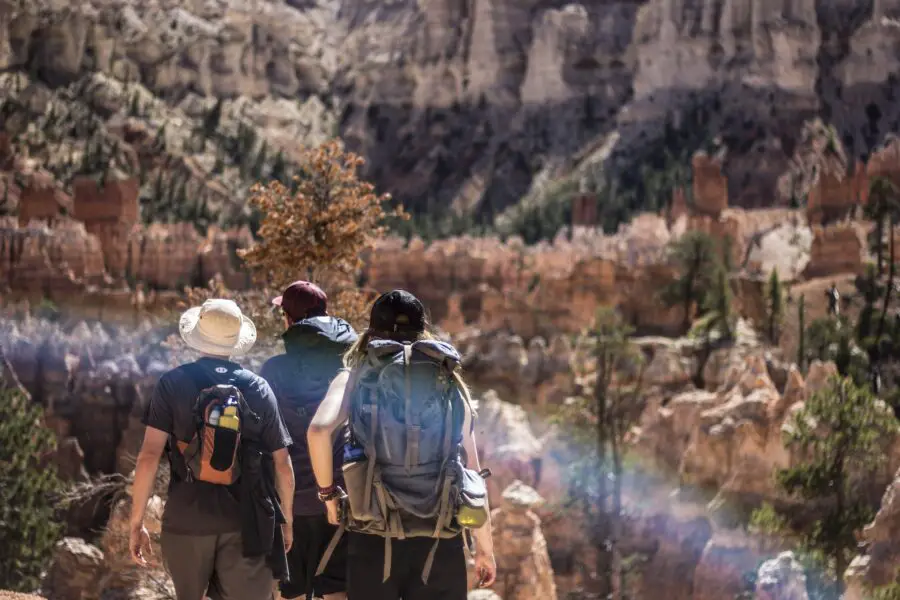
But, if you are hiking with others, remember to choose a hike that everyone’s comfortable with!
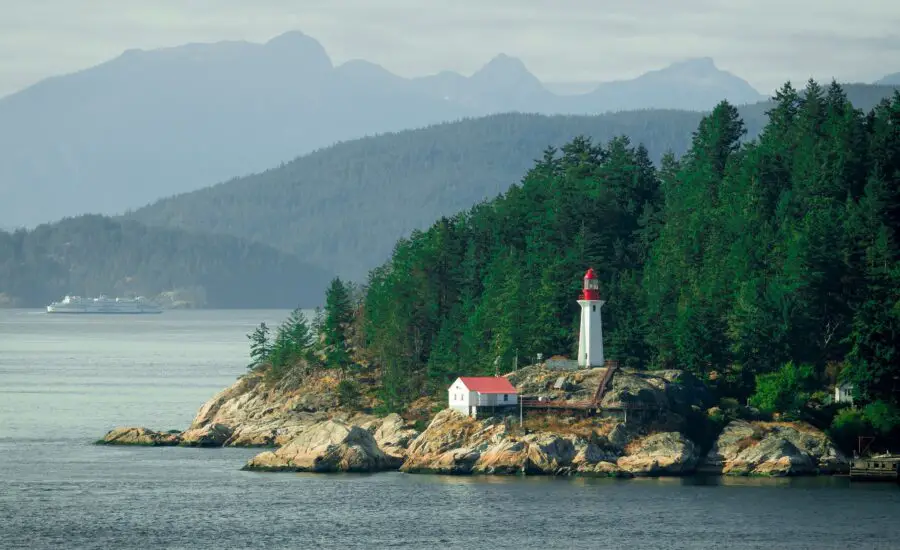
Thinking of visiting Vancouver, and want to learn about the best Vancouver hiking trails? Click here for my Vancouver hiking guide, or click here for the best hikes near Vancouver!
Pace Yourself
Next, don’t forget to pace yourself! You don’t want to burn all your energy to reach the summit of your hike, and then lack all energy for the return trip. Instead, pick a pace you can maintain all day (and don’t feel self-conscious if everyone’s passing you; hiking’s not a race).
Personally, I love hiking at a leisurely, comfortable pace, because I get to soak in the simple joy of being outdoors (and potentially spot some wildlife!).
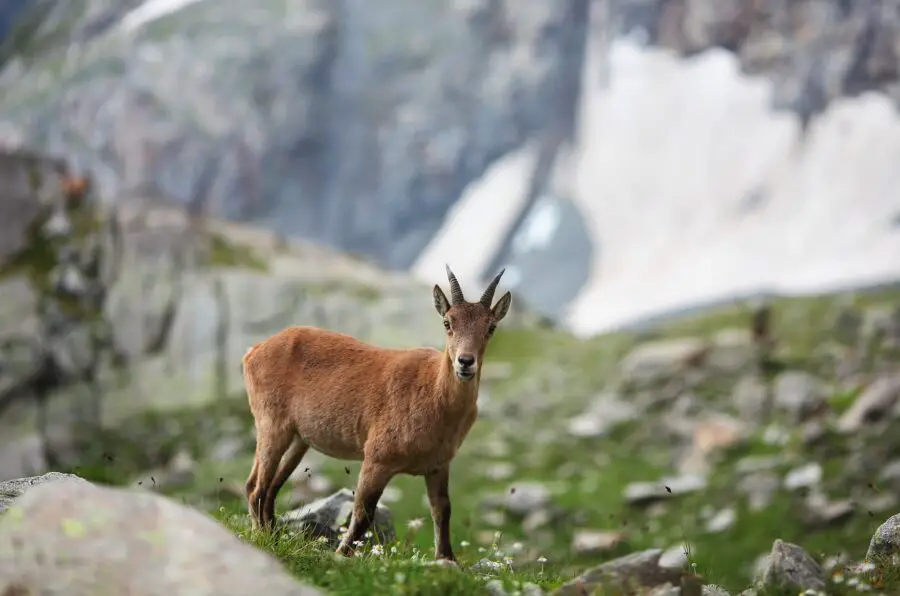
Pack the 10 Essentials
The most invaluable safety hiking tip to remember is to pack the essentials. Specifically, you should pack all the items on The Mountaineers Ten Essentials list, a list of 10 crucial systems for hiking safely.
While you probably won’t use most or any of these essentials on your hike, they’re necessary for emergencies (this is one of the most important beginner hiking tips!).

These are the 10 systems you have to pack:
- Navigation: For example, a map, compass, GPS, cell phone, extra batteries, etc.
- Headlamp: Including extra batteries.
- Sun Protection: For example, sunscreen and sunglasses.
- First Aid Supplies
- Repair Kit and Tools: Including a knife.
- Fire: For example, matches, a lighter and tinder, etc.
- Emergency Shelter: For example, a lightweight emergency bivy.
- Extra Food
- Extra Water
- Extra Clothes
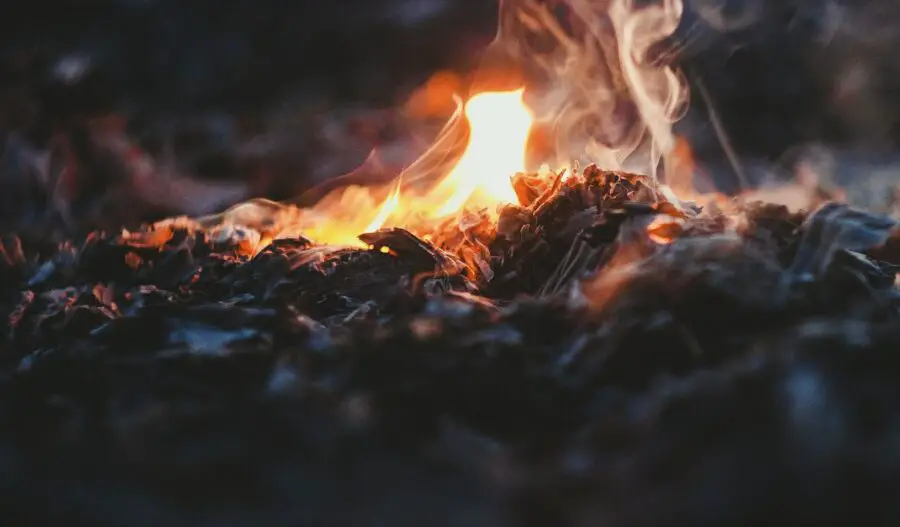
Now, what you’ll pack will vary depending on the hiking trail you’re going on. If you’re going deep into the wilderness on a trail no one really embarks on, you’ll probably want to pack a more elaborate emergency shelter. But, if you’re heading out to a popular trail close to the city, then you can use a simpler emergency shelter, like a jumbo plastic trash bag.
If you want to learn more about the 10 essentials, check out this article on the Mountaineers’ website.
Pack Light
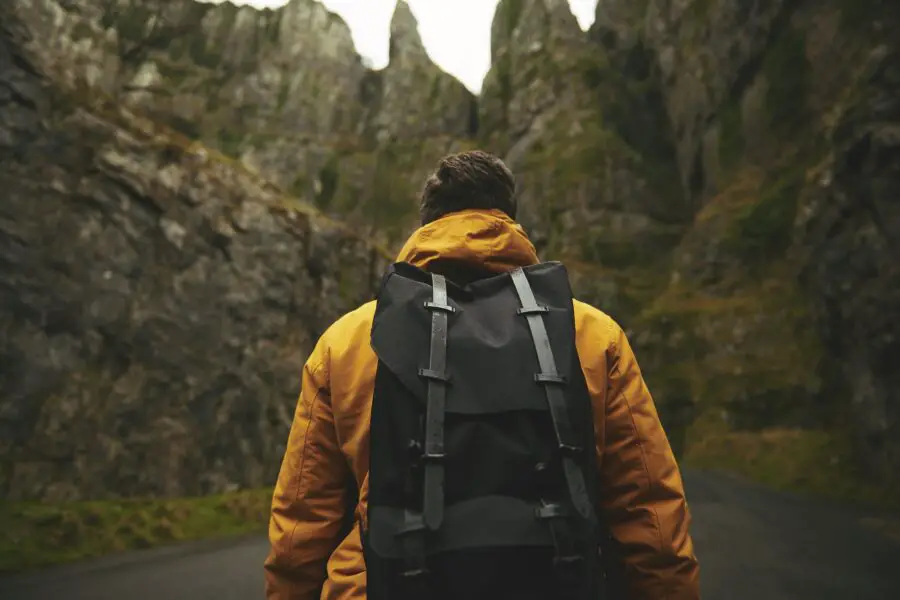
While this may contradict my last point, packing light is also one of the important hiking tips and tricks. Not only is carrying a lot on your back going to deplete your energy, but it can also affect how much you’ll enjoy your hike.
Fortunately, there are ways to pack light while still having the 10 essentials. The best way to do this is to pack the lightest version of the essential items; for example, pack a travel-sized sunscreen, or a smaller first aid kit.
Buy the Right Shoes
Truly, wearing the wrong shoes can ruin your entire hike. So the right hiking shoes are the most essential hiking gear for beginners! Choose ones that are comfortable, fit your feet perfectly, and are most suited to your types of hiking.
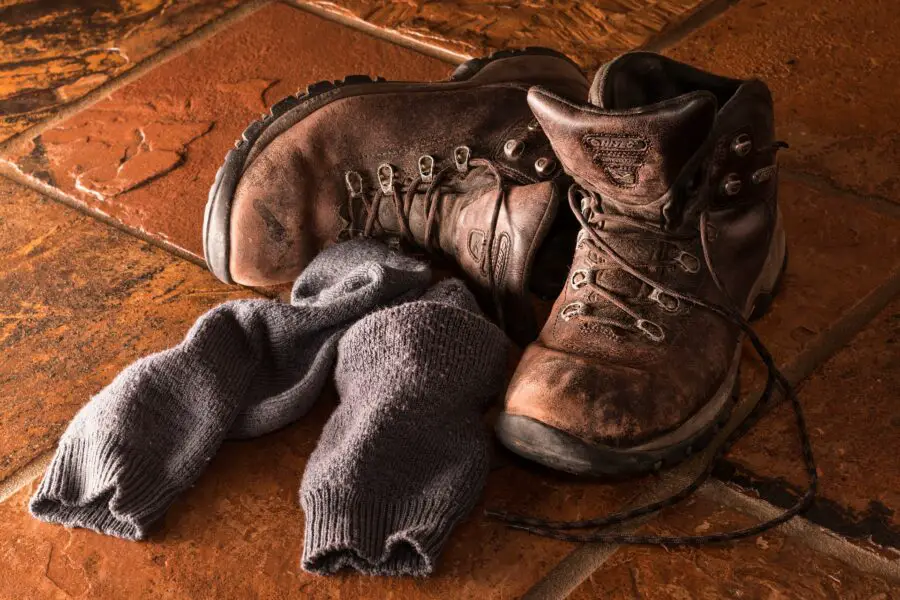
Now, this will vary from person to person; some hikers prefer lightweight shoes, others sturdy, some prefer more ankle support, others less. Regardless of your preferences, don’t forget to break in your new hiking shoes. I repeat, don’t embark on a huge excursion with your brand new shoes!
On that note, while investing in a good pair of hiking shoes is a smart move, I recommend buying second-hand at first. That way, you can find out which hiking shoes feel best for you.
Finally, don’t forget to wear the right socks as well; the best hiking socks are wool or synthetic socks, NOT cotton.
Dress Appropriately (And In Layers!)
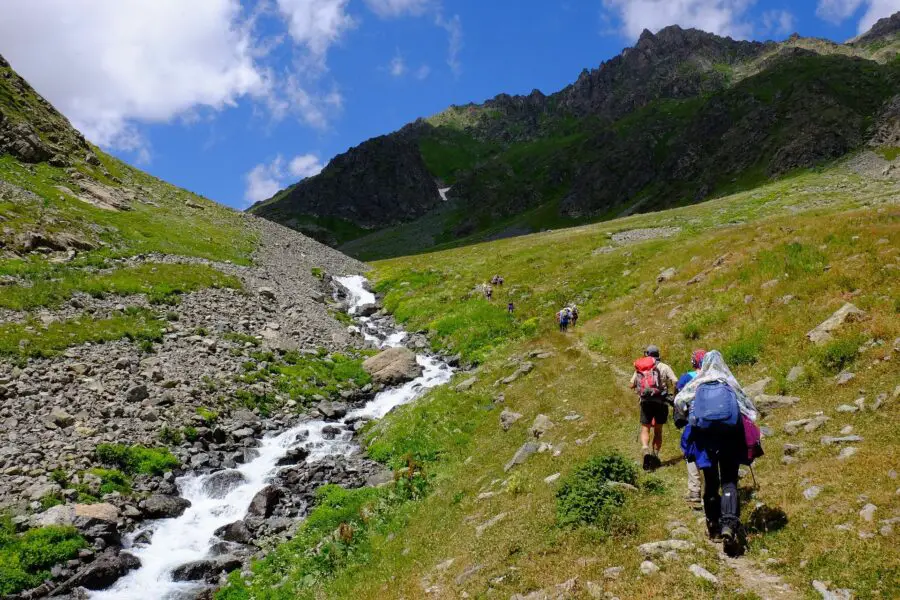
Now that you’ve chosen the right shoes and socks for your hike, it’s time to pick the rest of your outfit. You’ll want to choose clothes that dry quickly, to prevent discomfort and chafing if you get wet. That means no cotton, and no jeans! Instead, opt for synthetic clothing; both wool and polyester work well.
There are many great hiking jackets for women and men, with some of the top brands including Arc’teryx, Columbia, and The North Face. While these options tend to be a bit expensive, there are cheaper alternatives, or you can buy them second-hand.
Additionally, dress in layers! That way, you can add and remove clothing based on the weather, and how you feel. Finally, my last tip is to add an extra warm layer and rain gear in your day hike packing list, just in case.
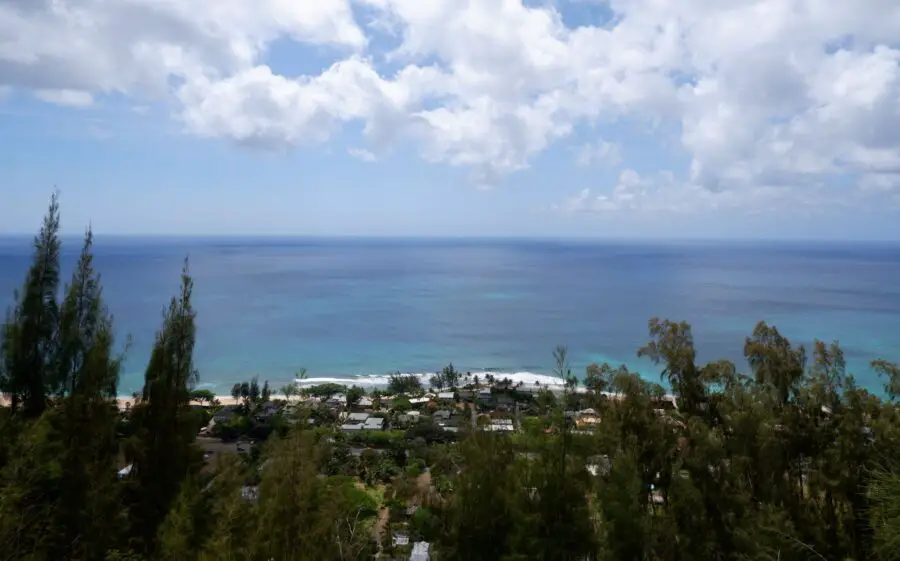
Want to learn about the epic hiking trails in Oahu? Click here for my Oahu hiking guide!
Or, if you want to get more specific, click here for the best waterfall hikes near Honolulu.
Eat Right
While it’s obvious to bring lots of water on your hike (more than you think you need), it can be harder deciding what food to pack.
You’ll want food that is lightweight, but provides ample and lasting energy (not sugary foods that make you crash). Think proteins, complex carbohydrates, and healthy fats. I like to pack several snacks as well, to give myself a small boost while hiking.

And don’t forget to eat a healthy and hearty breakfast before embarking on your hike! You’re going to need the energy.
Read Up on Wildlife
While wild animals generally like to avoid humans, there’s always the risk that you may have a wildlife encounter. By researching the wildlife in your area in advance and learning how to safely deal with potential wildlife encounters, you’ll be better prepared for the experience, and more importantly, you’ll know how to avoid conflict or injury.
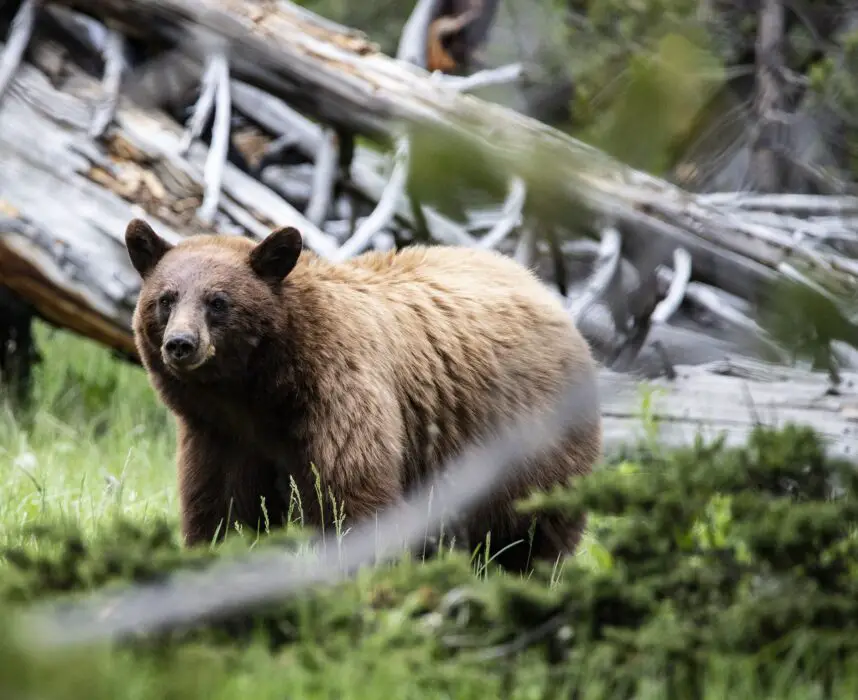
Nevertheless, if you’re worried about wildlife encounters, a great way of avoiding dangerous animals in general is to hike the popular trails at popular times. That way, you won’t be alone (and the noise from the crowds will probably scare off the wildlife anyways).
Watch Your Feet!
While you may be tempted to spend your entire hike gazing at the breathtaking surroundings, don’t spend the entire time looking around. Watch your feet! A common hiking injury is a twisted ankle from stepping in the wrong place or tripping over rocks and roots.
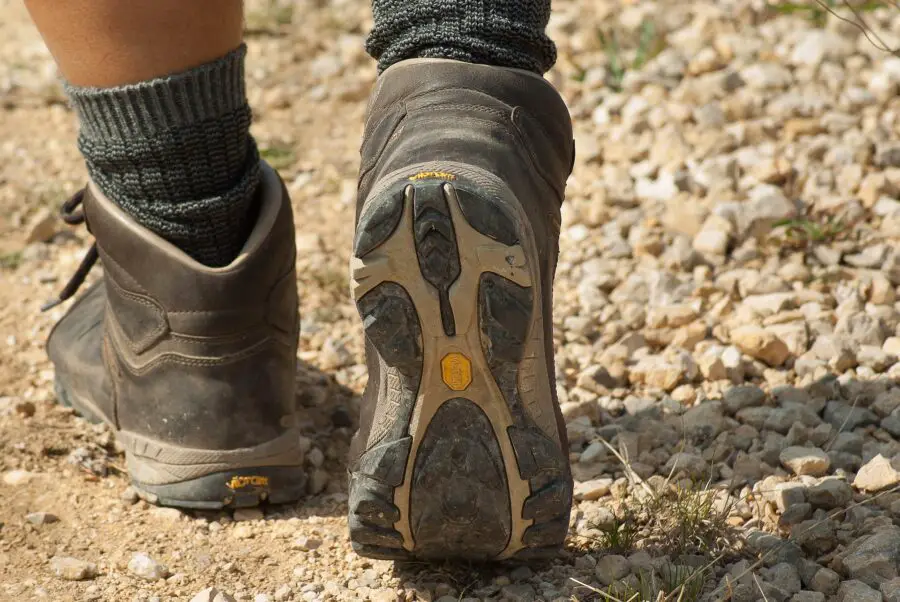
Leave No Trace
Finally, one of the biggest beginner hiking tips to remember is to leave no trace. And unfortunately, there are many ways you can unintentionally damage the natural environment when you go out on hikes. For that reason, Leave No Trace has seven core principles:
- Plan ahead and prepare
- Travel and camp on durable surfaces
- Dispose of waste properly
- Leave what you find
- Minimize campfire impacts
- Respect wildlife
- Be considerate of other visitors
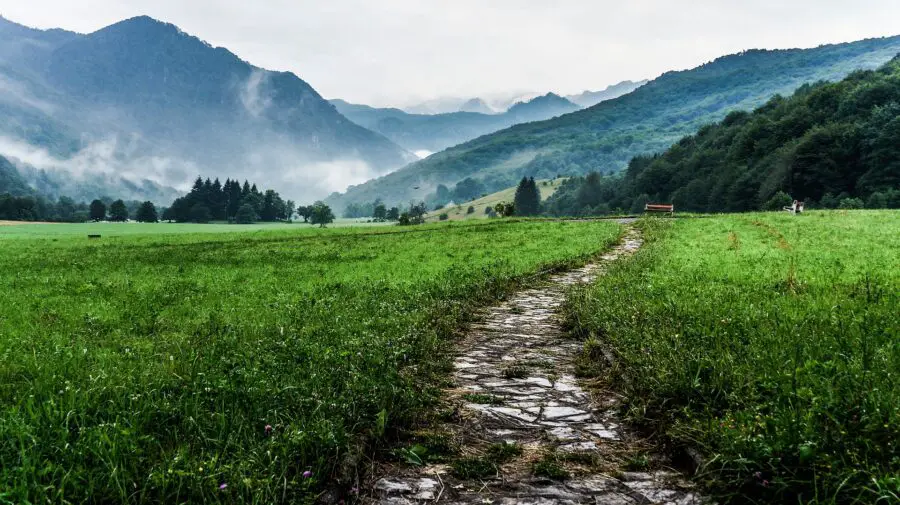
Essentially, these core principles will help preserve the spectacular natural environment surrounding the hiking trails, so people can enjoy them for generations to come. Don’t forget to play your part!
If you want to learn more about Leave No Trace, click here.
Additional Beginner Hiking Tips: Hiking Etiquette
On a final note, here are some general tips on hiking etiquette:
- Know Who Has Right of Way: Hikers climbing uphill have right of way over those going downhill, unless they’re stopping to catch their breath. Additionally, bikers yield to hikers, and hikers yield to horses.
- Say Hello: When you pass by someone on the trail, say hello.
- Don’t Be Loud: Many hikers hit the trails for some peace and quiet, or to hear the sounds of nature. Keep conversations down if you’re in a group, and don’t play music on a speakerphone.
- Be Aware of Your Surroundings: This includes not blocking the trail if you’re resting or if you’re hiking in a large group.
- Stay on the Trail: Preserve fragile ecosystems by staying on the trail!
- Don’t Disturb the Wildlife: Don’t take any items as souvenirs, and do not feed the wildlife.
- Don’t Litter: Even if you’re littering fruit that can decompose, it doesn’t disappear overnight, and this litter negatively affects the trails and wildlife dynamics. So, take your trash with you.
And That’s It!
I hope you enjoyed this article on the 15 best beginner hiking tips for how to start hiking. While the prospect of becoming a hiker may be nerve-wracking, you now know how to prepare for a hike and how to hike safely, and that’s the first big step! Good luck, and happy hiking 🙂
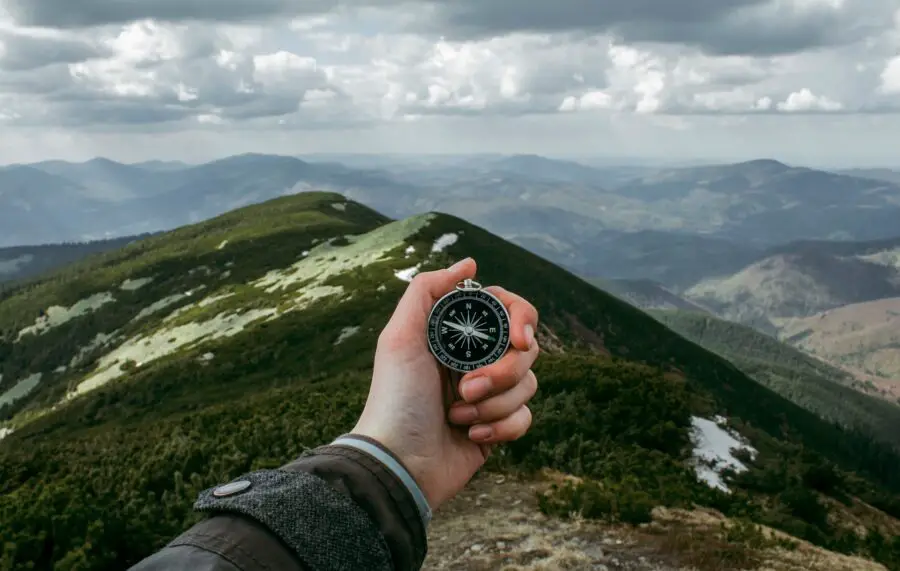
Thanks for reading the article! If you have any questions, feel free to comment down below, and if you want to see more travel and hike-related content, make sure to check out my other articles.
Cheers,

Photos by Mia and Pixabay.
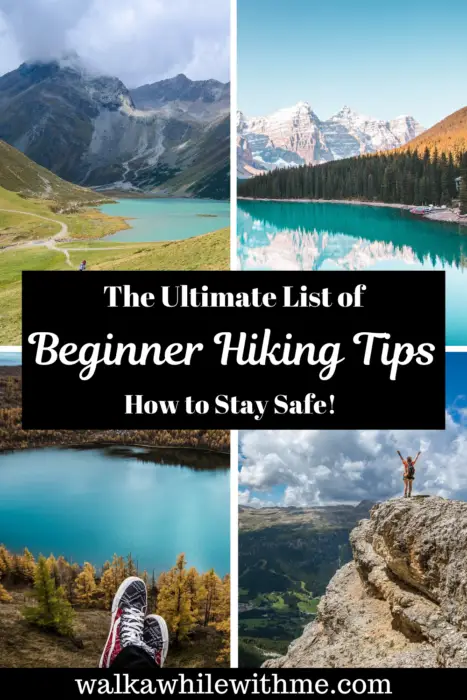
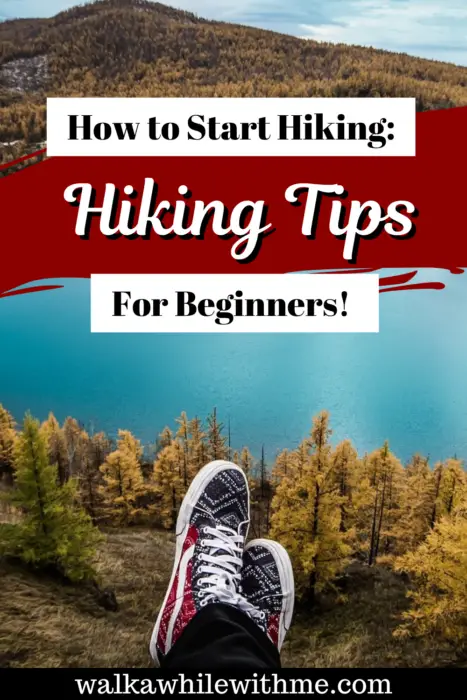
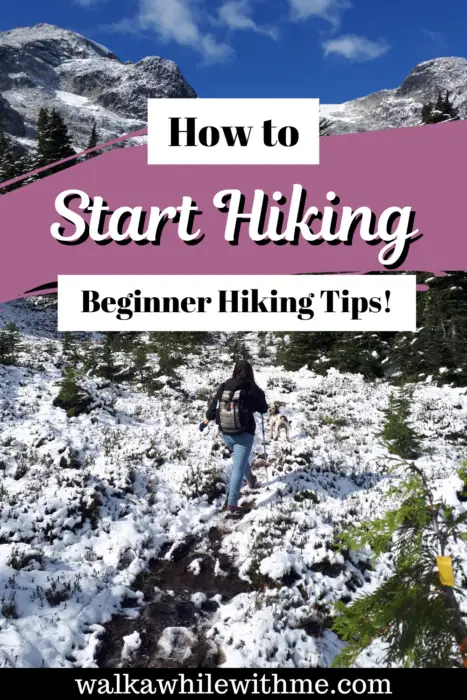
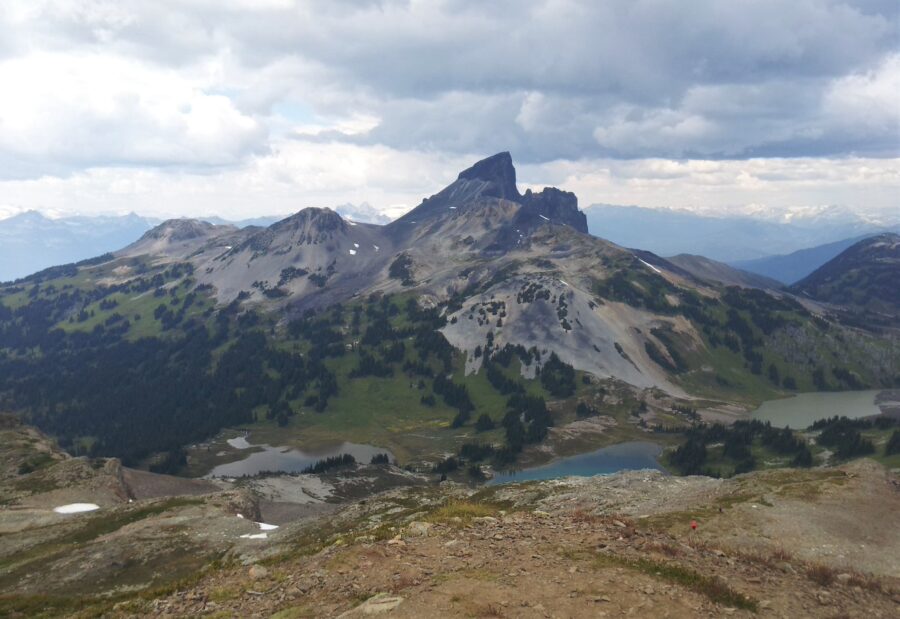
Want to learn about the best hikes near Whistler, BC? Click here for my list on the 6 most epic Whistler hikes!
About to embark on a trip? Here are some helpful articles to make your trip as awesome and stress-free as possible:
And here are some additional helpful links:
Like this post? Share it!
